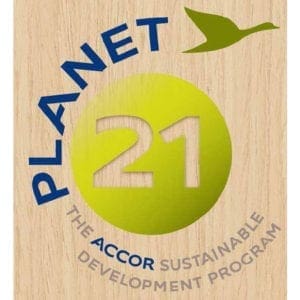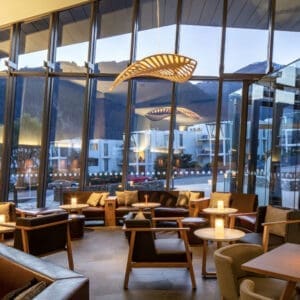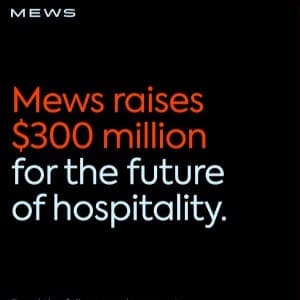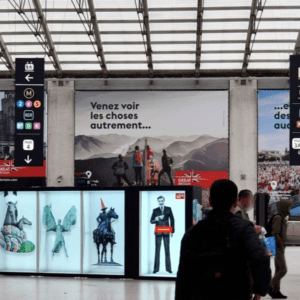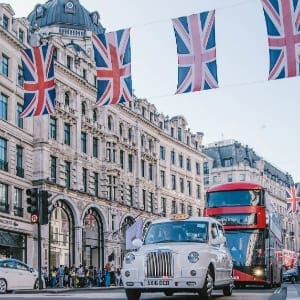 Hilton Worldwide has announced that it will reduce the environmental impact of meetings and events held at more than 90 hotels and resorts in Asia Pacific through an expanded carbon emissions solution, the Clean Air Program. Starting on May 1, meeting planners and delegates can play their part in reducing carbon emissions and deliver more sustainable experiences to their customers.
Hilton Worldwide has announced that it will reduce the environmental impact of meetings and events held at more than 90 hotels and resorts in Asia Pacific through an expanded carbon emissions solution, the Clean Air Program. Starting on May 1, meeting planners and delegates can play their part in reducing carbon emissions and deliver more sustainable experiences to their customers.
When customers choose any of Hilton’s participating hotels as meeting venues, the Clean Air Program will provide a calculation of the carbon emissions of the event at no cost to the customers. Hilton will then purchase the equivalent carbon credits to finance environmentally-friendly projects across Asia Pacific in partnership with carbon offset solutions provider Climate Friendly. The program is designed to make it easier for meeting professionals to incorporate environmental solutions into meetings and events.
Martin Rinck, president, Asia Pacific, Hilton Worldwide said, “Managing our environmental impact and developing new products to enhance the customer experience are part and parcel of how we operate as a business. Apart from consistently seeking opportunities to reduce waste and conserve energy in our daily operations, the Clean Air Program allows us to take our commitment to sustainability one step further. By offsetting carbon emissions from meetings and events, it means that we can provide essential financing to renewable energy, forest protection and restoration projects which is critical in mitigating climate change.”
Increasingly, investors and consumers worldwide have a greater appreciation of the need for sustainable development, and many leading companies around the world are incorporating sustainable practices into their business models1. Underscored by Hilton’s corporate responsibility strategy, Travel with Purpose, the Clean Air Program was designed as a valued opportunity for both Hilton and its customers to share a commitment to host more eco-friendly meetings. The Clean Air Program is an evolution of the Carbon Offset Program which was previously offered in more than 30 properties in Australasia, Southeast Asia and Japan.
Dominic Sherry, head of sales, Asia Pacific, Hilton Worldwide said, “Today’s customers seek greater meaning in their event experiences and would like event planners to consider the broader implications of the meeting itself. Offering the Clean Air Program at our participating hotels and resorts incorporates a tangible, yet hassle-free solution that delivers on the corporate responsibility commitments of our customers and Hilton.”
The Clean Air Program covers all events such as meetings, conferences, weddings and other social occasions held in participating hotels and resorts. Hilton will use LightStay, its proprietary system developed to calculate and analyze environmental performance, to track and measure carbon emissions from every meeting and event. Its “meeting calculator” feature takes into account the function room’s water and electricity usage, and the food consumed at the event.
Hilton has identified nine projects across Asia Pacific to be funded under the Clean Air Program. These projects, located in countries where Hilton operates, prevent greenhouse gases by producing renewable energy or preserving forests.
- China: Yuxian Baiyantuo Wind Project, located 150 kilometers west of Beijing, helps clean the air around the capital city by replacing coal energy with a large wind farm.
- India: Tamil Nadu 45-Turbine Wind Project generates clean electricity from wind that is fed into the Southern Electricity Grid of India.
- Japan: Japanese Energy Efficiency Upgrade Project helps carbon intensive businesses increase the efficiency of their energy usage.
- South Korea: Hyundai Steel Waste Energy Cogeneration Project uses waste gases produced by the factory to generate cleaner, better electricity.
- Australasia: Tasmanian Native Forest Protection Project in Australia protects tens of thousands of hectares of Tasmanian native forest from being logged.
- Southeast Asia: Siam Cement Biomass Project in Thailand uses farming waste to power a factory with cleaner energy; Musi Hydro Project in Indonesia generates electricity from hydro energy instead of coal; Borneo Rainforest Rehabilitation Project in Sarawak, Malaysia protects the rainforest, and is home to endangered animals such as the Pygmy Elephant and the Orang-Utan; and Song Ong Small Hydro Project in Vietnam uses hydro renewable energy to provide clean electricity to a local marginalized community.
For more information on the Clean Air Program and selected projects, please visit: www.HiltonWorldwideMeetingsAPAC.com/CleanAir.
1 Channel NewsAsia Sustainability Rankings – http://sustainability-ranking.channelnewsasia.com/about.html and PwC Investor Resource Institute’s Survey Findings – http://www.pwc.com/us/en/press-releases/2014/pwc-survey-finds-majority-of-investors-consider-sustainability-issues.jhtml


